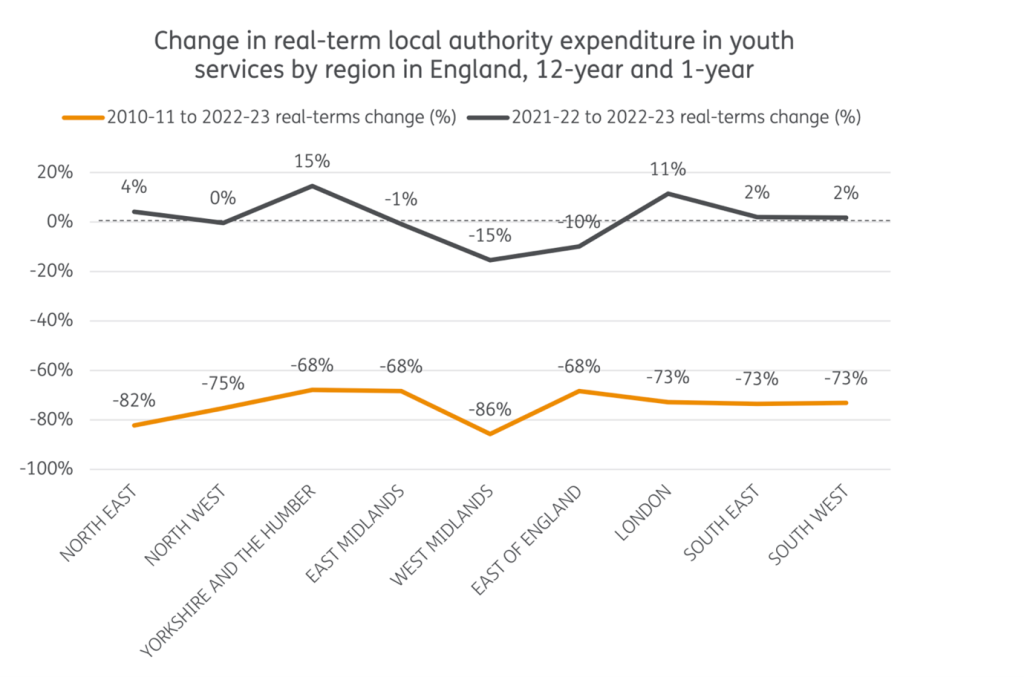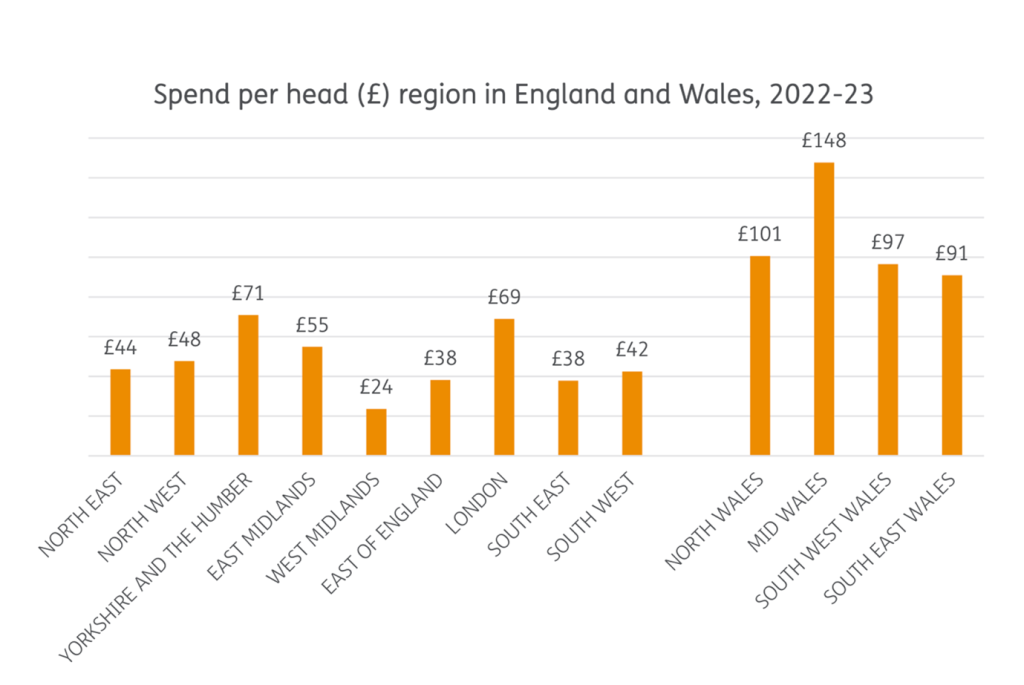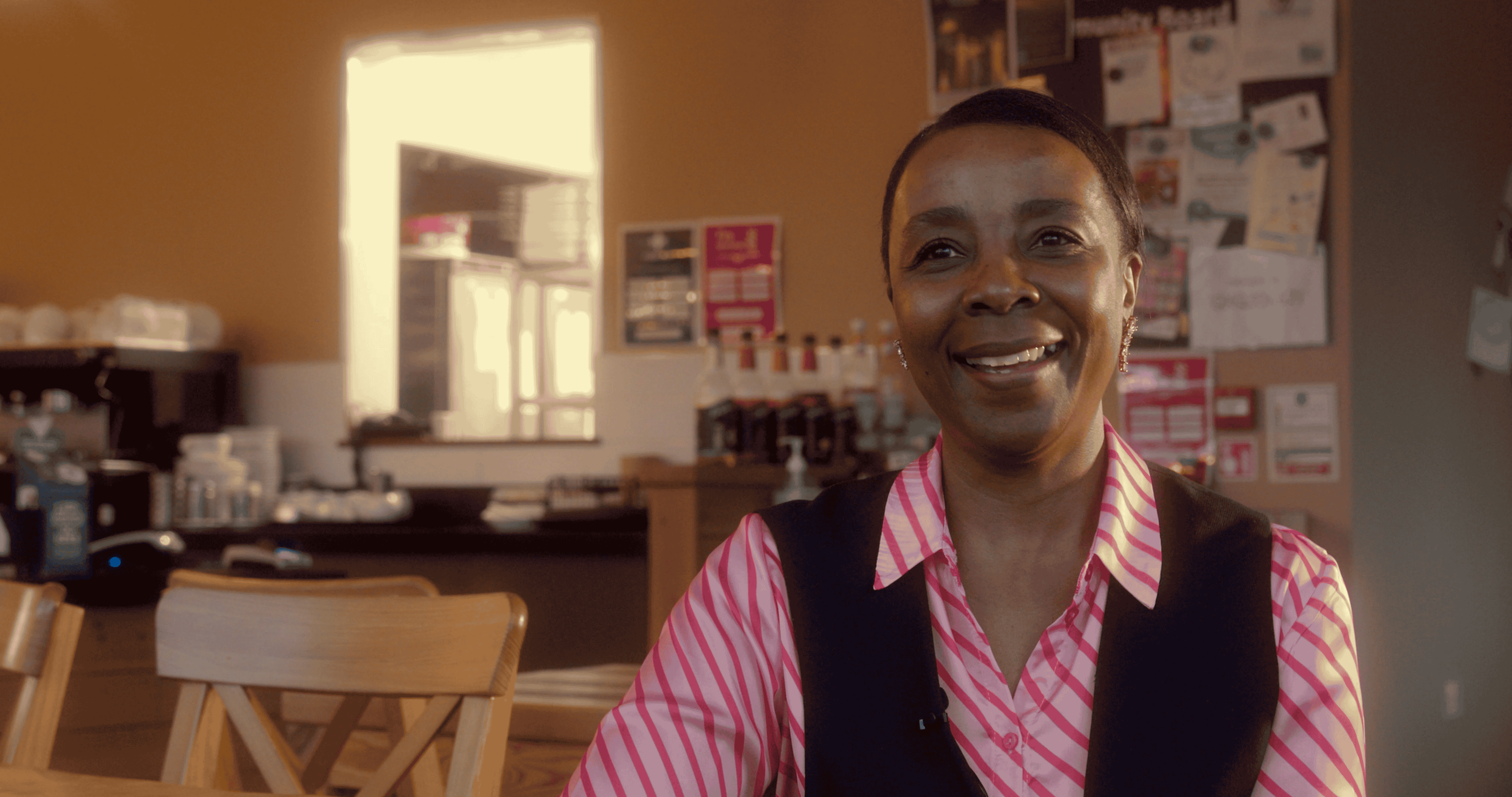In February 2024, YMCA England & Wales, sponsored by Vestey Holdings, published “On the Ropes”, a report on the impact of local authority cuts on youth services over the past 12 years. Among the findings of the report is that the West Midlands is currently the region with the lowest spend per head on youth services (with a total of £24 against an average of £70 per person in the rest of the country), and the highest real-term change in fundings dedicated to youth services (with a total of -86% since 2010/11).Despite the decline slowing across the country in the recent years, local authority-run youth services are a fraction of what they used to be. We talked to Pauline Tomlinson, CEO of YMCA – Heart of England, to ask her take on the findings shown in the report.


- Thank you for taking the time to discuss this with us, Pauline. First of all, do you feel like the significant reductions in youth service funding of the last few years impacted YMCA’s ability to support young people in the West Midlands?
What we see clearly portrayed in the results of this report has really impacted the young people we seek to serve and support here at YMCA – Heart of England, who have struggled to receive consistent youth services and programmes of support. It is clear that there is a gap in provision and the results simply confirm what we already know and what young people have been telling us for many years.
They tell us this in sessions that we pick up because of the reduction and in some cases no existence of youth provision for their local areas. If we pay attention, we can also see the negative impact of no longer having trusted youth workers and a place to go and ‘hang out’ with friends and peers. There are so many young people that now don’t have an outlet to express their feelings and frustrations or to be creative and have fun, and this gap is being picked up by what we see as an increase in knife crime and youth on youth violence. This is particularly problematic for individuals that have experienced trauma or come from difficult backgrounds.
The young people we serve value these services and have seen the impact they can have; and I feel like there is often an inability to understand that these cuts and the inability to access services have real-life impacts on real-life individuals. Practically, we have felt this impact in the terms of life coaches and support and youth workers having to pick up where local authority cuts have significantly reduced within youth services but if we combine this with the cost of living crisis for the families and neighbourhoods we can clearly see reduction in services is much wider than the lack of youth provision, but in real terms contributes towards an increase in poverty, in less youth workers being available in the area, and in a rise in demand for very limited existing resources.
- Do you feel that the sharp decline in local authority-run youth centres puts more weight on the shoulders of services provided by charities and the private sector? And do you feel this has affected the diversity and accessibility of youth services in the West Midlands?
The cuts that we have seen in the past few years and beyond have resulted in young people in some circumstances feeling lost about their place in society. In terms of our services, we have seen an increase in demand particularly in Coventry, where we have a fantastic youth provision, with many young people increasingly taken on those services. We found that, over the last years, and historically is often the case – charities always must pick up where local authority and government funding has been missing in terms of services, due to funding cuts.
This has meant having more young people attending the services that we provide. Among the impacts we believe in part relates to the lack of services for young people and an increase in youth crime in the neighbourhoods where services have been scarce, leading to young people being encouraged to take up – in some cases ‘unlawful’ activity as it gives them a sense of belonging and creates an outlet for them to be part of something. This can’t be right and needs addressing.
- Considering the data indicating that the West Midlands has experienced the most significant decrease in youth service investments, what message would you like to convey to policymakers and local authorities about the importance of reversing this trend?
It is tragic that the West Midlands has seen the most drastic cuts compared to other areas across England. The message that we want to convey is that this is just not good enough. We need to remember that young people are the future in terms of how we build, how we work, how we invest. We have seen significant funding shortages, and this means that we must do more. Our ask to policymakers, national government, decision makers is a simple question: what are we going to do about this?
These cuts are not acceptable and young people, charities, businesses, community groups have been saying this for many many years. It is not just young people being impacted, but their communities as well. We have seen the impact in terms of a rise in youth crime and in mental health issues in young people. We want to ask what it takes to reverse this trend – when will we see the need to invest in youth provision as a key priority, young people are no longer interested in empty promises but want to know when we are going to see youth provision back in the neighbourhoods across this region.
We need to see action, and that means investing properly within the youth services of this region and listening to the voices of young people, parents, and carers in terms of shaping what will work for them and their communities.
- How do you see increased investments in youth services contributing to the overall well-being of communities in the West Midlands, and what potential long-term benefits can be expected?
Thinking about potential long-term benefits, I believe if we want to reverse the trend, we need to look at long term investments / funding that is for 10 – 30 years, that can support current generations and break cycles of poverty and a sense of hopelessness. Sending out a message that we will invest in the longer term will enable communities to work together and focus on the task at hand rather than thinking where the next set of funding will come from.
I believe youth provision designed by young people and involving them at the centre of delivery and support will see life changing outcomes and will begin to reverse the trend. I also firmly believe that we will see a reduction in knife crime, mental health issues a break down in isolation and in turn instil purpose, a sense of pride, where young people can contribute, thrive, and belong.
Young people will be given an outlet and a place to feel safe.
We will also see improvements in mental health, as these types of activities often help in building confidence which will impact so many areas. The long-term impact comes from breaking a cycle of hopelessness. Once we see investments in youth services, it means we will be able to put on more youth provision lead and driven by young people, to ensure they have access to activities they want and need. This will lead to a rich sense of people feeling like there is hope and aid a sense of connecting communities for the better.
YMCA – Heart of England is currently seeking further opportunities to have a conversation with local MPs to raise this issue further and seek solutions to addressing this ongoing problem, sharing real life experience from youth workers and young people themselves from our organisation and within the community, working on a way to move forward together.
